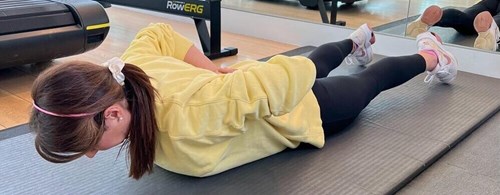Shoulder mobility and why it is important – how FRC® Mobility Specialists (FRCms) can help you
15 Mar 2024
The shoulder joint
Mobility is the ability of the joint to move through its full range of motion. The shoulder joint (glenohumeral joint) is a ball and socket-type synovial joint, and one of the most mobile joints in the human body. The shoulder joint is a complex system made up of five joints and three bones:
Clavicle, scapula and humerus.
This complex system of joints and bones allows your shoulder to move in different directions and each movement has a different range of motion.
For instance, a normal range of motion for shoulder flexion is 180 degrees. A normal range of motion for shoulder extension to the highest point you can lift your arm behind your back is between 45 and 60 degrees. A normal range for abduction is around 150 degrees in a healthy shoulder and 30 to 50 degrees for shoulder adduction.

Shoulder problems
Mobility issues that develop in the shoulder can result from several types of activity or inactivity. Some of the most common types of shoulder mobility issues are impingement, rotator cuff tears, and frozen shoulder. Instability and overuse of the joint cause many of these. A sedentary lifestyle or a desk job are one of the most common causes of limited shoulder mobility. This is because a lack of activity will cause the shoulder muscles to tighten, reduce the stability of the joints and significantly restrict movement and leading to poor posture.
Signs of poor shoulder mobility
Limited range of movement
Discomfort lifting your arm
Pain in shoulder
Unable to lift arm above shoulder
General weakness in the shoulder
Pain when you move, especially when you reach overhead or play sports that involve a great use of the shoulder joints, such as tennis, golf, swimming, basketball/volleyball and many others.
Grinding sound in your shoulder
Pain at night and numbness
FRC® Mobility Specialists (FRCms) can help you
Shoulder health & mobility are very important to improve athletic performance, prevent injuries, reduce pain and stiffness, and improve posture.
FRC® shoulder mobility exercises are a great way to help your joints move smoothly and without pain, improve your functional fitness and ability to carry out everyday tasks. No matter where you are in your fitness journey, it is never too late to start adding controlled articular rotations (CARs) to your mobility workout routine. Even if a limited range of motion or joint pain isn't currently affecting your workouts, proactively incorporating CARs into your workout routine can help prevent immobility issues from developing later.
Alessandra Bonardi – White Room Fitness personal trainer and FRC® Mobility Specialist (FRCms)

